- Home
- Jennifer Donnelly
The Winter Rose Page 18
The Winter Rose Read online
Page 18
"Please," he said, trying to sit up again.
"Mr. Malone, lie down!"
"Will you stay?"
"Yes, all right, but only if you lie down."
He did. "Tell me something," he said. "Anything. Just talk. Tell me how you became a doctor."
She laughed wearily. "You'd weep with boredom," she said.
"I won't. I want to know."
"Dr. Jones?" A young nurse was standing in the doorway.
"Yes?"
"Here's the beef tea you sent for. And Sister Abel thought you might like a cup of plain tea yourself."
"Thank her for me, will you? And thank you, too."
The girl put her tray down by Sid's bedside and left. Sid saw that she could barely keep from curtseying. Her eyes were shining with admiration as she looked at the doctor, but the doctor didn't even notice.
"Could you get a bit of beef tea down?"
"I couldn't. I'd only heave at it. Just talk ...please."
"Mr. Malone, are you quite certain you want to hear about medical school?" she asked. "I want to keep you out of a coma, not put you into one."
Sid nodded. "The talking ...your voice...it takes me mind off the pain," he said.
Her forehead creased with worry. "Is it bad?"
"Bleedin' horrible."
"All right, then. But quid pro quo. After I tell my story, I want to hear yours."
Sid nodded. He would have agreed to anything. The doctor sat down by his bedside and started to talk. She was self-conscious and halting. She stopped once, embarrassed, and said, "I can't believe I'm nattering on like this. I've never told anyone these things before."
"Why not?"
She thought for a few seconds, then said, "No one ever asked."
And then a few minutes later she was telling him what it felt like to be eighteen years old, standing on Hunter Street, on the steps to the London School of Medicine for Women, all alone. The frown that was often pres-ent, clouding her eyes and creasing her forehead, disappeared. She told him about her first F--in Chemistry. And her first A--in Diagnosis. She told him about the endless nights in the library, her house appointment at the Royal Free. And how she'd been pelted with mud by other medical students--male students--who thought women had no business studying medicine. Sid had asked her to talk to take his mind off the pain, but to his surprise he found himself interested in what she was telling him. Inter-ested in her. He didn't want to be.
She described how it felt to examine another human being--to talk with someone who was ill, sometimes in terrible pain, to gain her trust, to touch her. She told him how important it was to her to always be worthy of that trust. She told him about the indescribable joy of healing, of making a person well, of battling for someone's life. He watched her face as she spoke. Usually contained, it became animated and radiant.
He asked her how she could cut someone open, and she told him about the terror she experienced the first time she did it because she saw a person then. But over the years she'd trained herself not to. Now she saw only a tu-mor, a hernia, a ruptured appendix.
"How did you train for that? The cutting," he asked.
"We practiced on cadavers. People. Dogs. Pigs. Whatever we could get."
"You never."
"What else would we practice on? Live people? They might object to being sat down and cut open, don't you think? The only problem is the decay. We always got the ripe cadavers at the women's school. It's not the same, cutting through decayed fiesh. It's slippery. The scalpel skids instead of catching. And sutures? They rip right through. Living fiesh is tougher, more resilient."
"Bloody hell, stop. Please."
"Sorry," she said. "That's why I don't talk about my work much. I get car-ried away. Can't help myself."
"Bet you're a popular dinner guest."
She laughed. "Not very."
"What's it like when your patient pops off?" Sid asked, desperate to keep her talking. The red wall of water was building. He knew if it caught him again it would take him out, and this time he would not be able to make his way back.
"I don't know. I've never lost one."
"I think I'm going to be your first."
"You will not."
She almost sounded arrogant. "Don't see how you know that," he said.
"It's a fight, Mr. Malone. A human being--the most beautiful, complex, miraculous machine ever created--against a single-celled parasite. A bacterium. An organism that lacks a mind, a soul, consciousness, purpose, and reason. Would you like to be bested by such an opponent? I would not. And will not."
Her gray eyes sparked with passion as she spoke. Sid looked into them and for a second he glimpsed her soul. He saw what she was--fierce and brave. difficult. Upright. Impatient. And good. So good that she would sit covered in gore, shout at dangerous men, and keep a long, lonely vigil--all to save the likes of him. He realized that she was a rare creature, as rare as a rose in winter.
He wanted to tell her what he saw. Wanted to tell her that he had known good people once. A lifetime ago. But he couldn't. She would think him mad. So instead he said, "Tell me why."
"Why what?"
"Why you became a doctor."
"I..." she began, then stopped speaking and shook her head no.
"Give me more dope, then," he said. "One or the other. You've got to."
"It's getting worse?"
He nodded unwillingly. He felt helpless, totally dependent on this woman, and he hated it. He didn't allow himself to be dependent on any-one. For anything. Ever.
She took his pulse again and frowned.
"No dope?"
"Not yet."
"All right, then. Once upon a time..." he prompted.
She looked away, at the rain on the window, and he knew she was seeing another window, another place.
"Once upon a time," she began, "there was a little girl who lived at Blackwood, a beautiful castle in Wales."
"I was joking about the once upon a time. I want a true story."
"Keep quiet and you'll get one."
"Go on, then."
"The castle was an unhappy place, but around it were woods and streams and the black hills towering, and the girl had wonderful friends to play with. A sister named Maud. A cousin named Wish. Their friends Freddie and Bing. Bea, the gamekeeper's daughter. And Hugh, Bea's brother. Hugh and Bea lived in a cottage in the woods, where there were always fairy stories by the fire told by a lovely, smiling mum. And tea and biscuits. They grew up together and were inseparable, the girl and her friends."
"Was there a witch? A wolf?"
"No, Mr. Malone, there were not. Who needs make-believe monsters when there are so many real ones?"
That was aimed at him, he knew it was. His anger flared. Who was she to judge him? And why did he care what she thought? For God's sake, why? He wanted to tell her to leave, but he couldn't. Her voice was the only thing keeping the pain at bay.
"But then the children grew older and had to leave the forest. Hugh became a groom at the castle. And Bea became a maid."
"And the girl?"
"A sad and useless prisoner in a corset and gown."
"That's not a very happy story."
"I quite agree, and I'm afraid it gets worse. When Bea turned sixteen, she fell in love. She wouldn't tell me, or any of us, who he was. We thought she was only telling stories, playing games."
Sid noticed that the little girl had become "me" and that India's voice had grown wistful, her eyes faraway. He stared at those eyes. As long as he could see them he could stay above the pain, tread its dark waters.
"One day I went to look for Hugh in the stables. Bea was there. She'd been crying. She told us that she was going to have a baby. The father was a boy from the village. He'd run off when she told him about the baby. I wanted to help her. I told her to wait. We would figure something out. But she was frightened of her parents' finding out. And mine. My father was her employer. Had he known, he would have sacked her immediately."
I
ndia took a sip of her tea, then continued. "A few days later, a pair of very valuable hair combs that belonged to my mother went missing. One of them reappeared at the local pawnbroker's. The pawnbroker got scared, I think. He recognized the comb's worth--and the initials on it--and turned it over to the police. He described the young man who'd sold it to him: it was Hugh. The police went looking for him, but they couldn't find him. I did, though. I found him in our meeting place, the ruins of an old cottage on my father's estate. Bea was there, too. Lying on the ground. Hugh had made her a bed out of horse blankets. They were soaked with blood. She'd had an abortion and whoever did it had butchered her. Hugh had taken the combs to pay for it.
"When he saw me, he told me to leave, but I wouldn't abandon Bea. She needed a doctor. I told him to bring her to the gates in half an hour. I went to the stables and waited for the head groom to leave for his dinner. Then I rigged one of our traps. I met Hugh and Bea at the gates as planned and hid them in the back under blankets. I drove all the way to Cardiff, to the hos-pital there. Freddie came with us." She stopped and shook her head. "I was so stupid. I had brought no money. My mother believed that well-bred young ladies don't carry cash, you see. I had to find a pawnbroker and sell my earrings. By the time I got back to the hospital Bea was dead. The po-lice were summoned. I was frightened for Hugh. We tried to get out of the place, all three of us, but we went the wrong way." She stopped talking again and gave a bitter laugh.
"What? Why are you laughing?"
"We ended up on the pulmonary ward. The pulmonary ward! Every-where I looked there were miners dying of black lung."
"I don't follow you."
"Forgive me, I thought you knew. Many people do. My father is Lord Burnleigh. He owns half the coal mines in Wales. Most, if not all, of the men dying on the ward worked for him. We saw men of thirty who looked like they were a hundred. Miners' children wasted by consumption. A little girl--no more than six--coughed blood into her sheets as we passed. A woman saw me and recognized me. I had a peacock-blue coat on that day. Mother had bought it for me in London. The woman spat at me. She told me she hoped I liked my coat because it came dear. Her husband's life had paid for it." She stopped then, unable to continue.
Sid was quiet for a few seconds, then he said, "So that's why you're a doc-tor. Because of Hugh, the gamekeeper's lad." There was something harsh in his voice, something mocking. Don't, he told himself, but it was too late.
India heard the harshness and flinched, suddenly vulnerable. "I have no idea why I told you all this, Mr. Malone. I must have bored you dreadfully. Please forgive me." She stood.
"Wait. What happened to him?"
"The police arrested him," she said, gathering the tea things.
Sid snorted. "Of course they did. Your father pressed charges, didn't he? Even though he got the combs back."
"He got only one back. Hugh said he hadn't taken the second one, but neither my father nor the police believed him."
"And you?"
"I did believe him. I still do."
"He loved you, didn't he?"
The teacup she held slipped from her hands, clattering noisily onto the tray.
"That's rather too personal a question."
"And you loved him."
She did not answer.
"But you're not with him now."
"No, Mr. Malone, I am not," she finally said, picking up the tray.
"Poor bollocks. Probably back in some coal mine eating his heart out for you. But I can't quite see Dr. Jones, Lady India, hitched to a jailbird."
"Hugh died, Mr. Malone. In prison. Of typhus."
You stupid arsehole, Sid said to himself. "Bloody hell," he said to India. "I...I'm sorry. I didn't know. Didn't think..."
"No, of course you didn't. I can't imagine you ever do."
The curtain had come down. The radiant face, so open, was closed off again. Because of him. He'd said those things to hurt her. Because she'd hurt him. Calling him a monster. Or had she? Had he just imagined that? He was furious with himself. He wanted to apologize again. He wanted her to stay, to tell him more about herself, but he couldn't ask her to. Not after what he'd said.
"I'll be back in a little while to check your temperature," she said, moving toward the door.
"Wait lease." The pain was growing stronger. And there was something more ...something underneath the pain. Hiding. Waiting. He began to shake. "I need another blanket," he said, through chattering teeth.
"You've two already. Are you cold again?"
"Freezing."
She put the tray down and opened another blanket. He shivered con-vulsively as she put it over him. His heart started hammering, so fast and so loud, he was certain it would smash through his ribs.
"Dr. Jones ...I..." He tried to tell her about the pain, and the dark thing lurking beneath it, but he couldn't. He was suddenly gasping for breath.
"Sister Abel!" he heard her shout. There were the sounds of running feet. Someone was shouting. He heard the words septic shock.
It was rising fast, the red tide of pain. He reached for the doctor's hand and clasped it. He mustn't let go. No matter what. He was safe with her. She would hold him here, keep him from drowning, no matter how high the waters surged.
But then her voice faded, and then he heard nothing, only the sound of the sea as the red waves crashed over him, pulling him out and dragging him under.
Chapter 14
"Do you love her?"
Freddie ran a hand over Gemma Dean's bare breast, her hip, the soft skin of her thigh. "No, Gem, I don't," he said. "I love you. I know you don't believe me, but I do."
"I do believe you, Freddie. At least, I believe you love me as much as a man like you can love. In other words, not very much at all."
"Gem..."
"If you don't love her, why are you marrying her?"
"Because she's rich. Very rich. And I, unfortunately, am not."
Gemma snorted.
"It's true. My bloody brother controls all the family money. What there is of it. He gives me an allowance. A pittance, really. I need real money to get where I want to go in life."
"And where's that, Freddie?"
"Downing Street."
Freddie rolled over onto one elbow. He lay tangled in the sheets in Gemma's large bed. They had just made love. For the last time, she'd said.
"Wait until I'm married," he said. "Things will be better between us, I promise. I'll be so bloody rich, I'll have money coming out of my ears. I can take care of you then. I'll pay for your flat. A carriage and horses. Whatever you like."
"Why should I wait for you?" Gemma sniffed. "I'll be married myself by then. My new man's rich. He buys me everything I need. Dresses. Furs. He's already paying for this flat."
Jealousy, hot and lethal, gripped Freddie. "Who is he?" he asked.
"None of your business," she said, getting out of bed.
"What's his name?" He grabbed her wrist and pulled her back.
"Leave off!" she said. "I've said enough. I never should have done this. I should have pitched you out on your arse. Would have, too, if you weren't so bloody good-looking."
Freddie smiled. "But I am. And a good lover, too."
"Don't flatter yourself."
"I'm not," he whispered, pulling her back, pulling her close, nuzzling her ear.
"Stop, Freddie. It's time for you to go now. Really."
"No, it isn't," he whispered. He sat up and straddled her, then grabbed her hands with one of his and pinned them to the bed.
"Get off me!"
He kissed her, savoring the taste of her, all champagne and chocolate. "Tell me you don't want me," he said. "Go ahead."
"I don't want you," she said.
He snaked a hand between her legs, pushed his fingers inside of her, making her gasp. "Liar," he said. "You're dripping wet." He stroked her there, softly at first, then harder.
He stopped to kiss her neck, the place behind her ear, then felt her shiver as he bent his head to her br
easts. He knew she wouldn't stop him now. Gemma was made for love. She had the most beautiful body he'd ever seen, all rosy silken curves. She drove him wild with desire. Sex with her was explosive, combative, noisy--the best he'd ever had. He couldn't imag-ine losing that, losing her.
"Tell me, Gem..." he whispered, thrusting into her. "Say you want me."

 Rogue Wave
Rogue Wave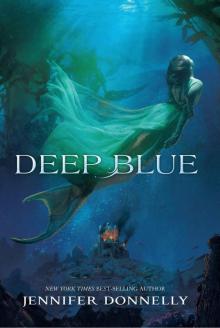 Waterfire Saga, Book One: Deep Blue (A Waterfire Saga Novel)
Waterfire Saga, Book One: Deep Blue (A Waterfire Saga Novel)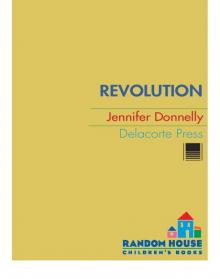 Revolution
Revolution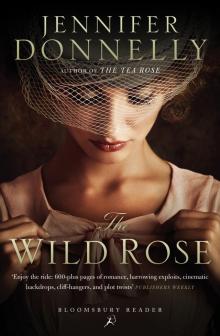 The Wild Rose
The Wild Rose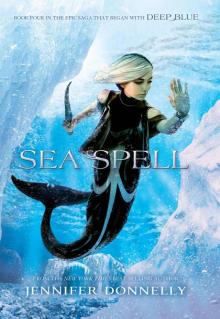 Waterfire Saga (4 Book Series)
Waterfire Saga (4 Book Series)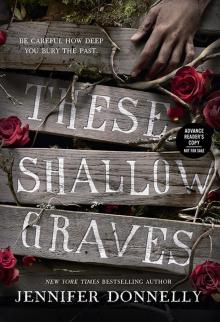 These Shallow Graves
These Shallow Graves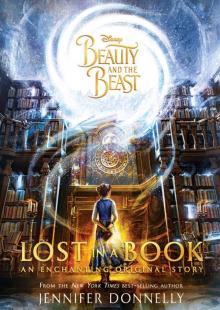 Beauty and the Beast: Lost in a Book
Beauty and the Beast: Lost in a Book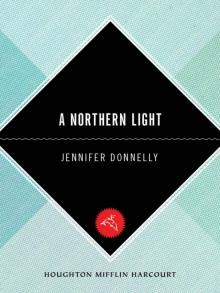 A Northern Light
A Northern Light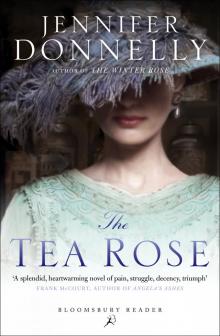 The Tea Rose
The Tea Rose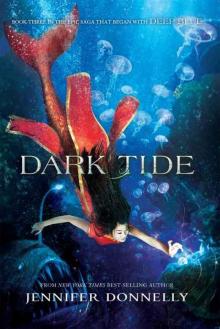 Waterfire Saga, Book Three: Dark Tide: A Deep Blue Novel
Waterfire Saga, Book Three: Dark Tide: A Deep Blue Novel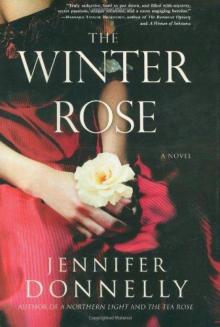 The Winter Rose
The Winter Rose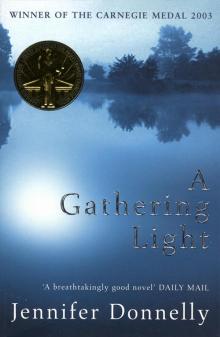 A Gathering Light
A Gathering Light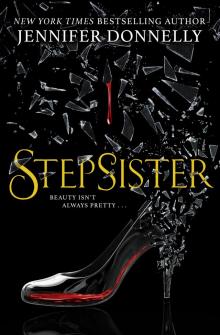 Stepsister
Stepsister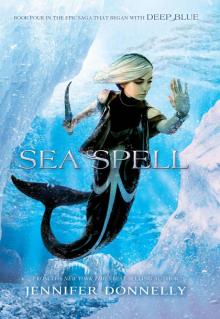 Waterfire Saga, Book Four: Sea Spell: Deep Blue Novel, A
Waterfire Saga, Book Four: Sea Spell: Deep Blue Novel, A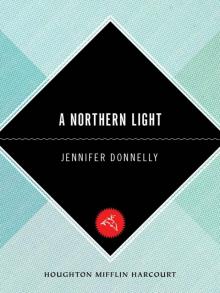 Northern Light
Northern Light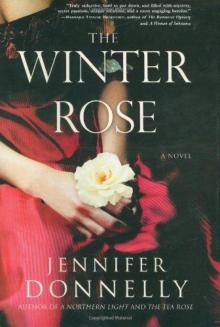 Winter Rose, The
Winter Rose, The